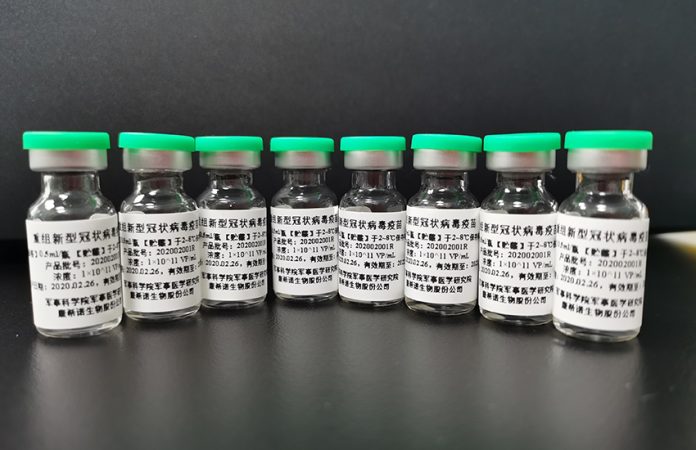The immunity against Covid-19 provided by China’s single-shot CanSino vaccine — which has been used in Mexico to inoculate millions of seniors and teachers — declines significantly after six months, according to the results of a clinical trial.
People inoculated with the vaccine should therefore be given a booster shot, the study concluded.
According to a report by the newspaper El Universal, the National Institute of Medical Sciences and Nutrition, one of the Mexican institutions involved in the trial that began late last year, wrote to participants earlier this month to advise them that immunity against Covid-19 generated by the CanSino shot had been found to wane “significantly” after six months. It didn’t specify what it meant by significantly.
The CanSino vaccine had been found to be about 75% effective against the coronavirus and 100% effective against serious disease.
The medical institute’s email message to trial participants said they would be given a second CanSino dose if they had already received a first shot. Those who received a placebo will be given a first shot of the CanSino vaccine and a second shot six months later, the email said.
El Universal asked the federal Health Ministry what the study’s finding would mean for the government’s national vaccination program but the ministry didn’t respond to the newspaper’s request for comment.
As of Sunday night, Mexico had received 4.6 million doses of CanSino, a figure that accounts for about 14% of all shots delivered. The government last year signed an agreement to purchase 35 million doses of the shot, one of two Chinese-made vaccines that have been used in Mexico.
If the government follows the advice based on the findings of the clinical trial, all people who have already had a CanSino shot will have to get another one before the end of the year. The number of people who can be inoculated with the CanSino shots Mexico has agreed to buy would be halved from 35 million to 17.5.
The CanSino vaccine is not the only Covid-19 vaccine for which a booster shot is likely to be required. Pfizer CEO Albert Bourla said last month that people inoculated with that company’s product would likely need a third booster dose.
“A likely scenario is that there will be likely a need for a third dose, somewhere between six and 12 months and then from there, there will be an annual revaccination, but all of that needs to be confirmed. And again, the variants will play a key role,” he said April 1.
Johnson & Johnson CEO Alex Gorsky told CNBC in February that annual vaccination against Covid-19 might be necessary, as is the case with the seasonal flu.
Mexico has received almost 33.5 million doses of five different vaccines, according to data presented at the Health Ministry’s Sunday night coronavirus press briefing. The government has received 13.4 million Pfizer shots, 6 million doses of AstraZeneca, 7 million SinoVac vaccines, 2.4 Sputnik V shots and 4.6 million doses of CanSino.
Just under 26.5 million of the doses, or about 80% of those received, had been administered by Sunday night.
Mexico’s coronavirus situation has improved significantly since the country went through its second and worst wave of the pandemic, which began late last year and extended into early 2021. Half of Mexico’s 32 states are now low-risk green on the federal stoplight map, 15 are medium risk yellow and just one — Quintana Roo — is high-risk orange.
Mexico’s accumulated case tally is currently 2.39 million, while the official Covid-19 death toll is 221,647, a figure considered a vast undercount.
Source: El Universal (sp), CNBC (en)
